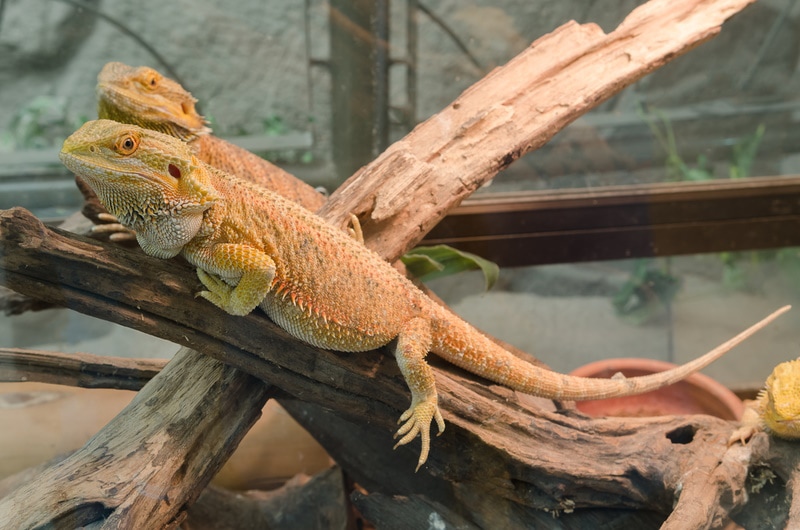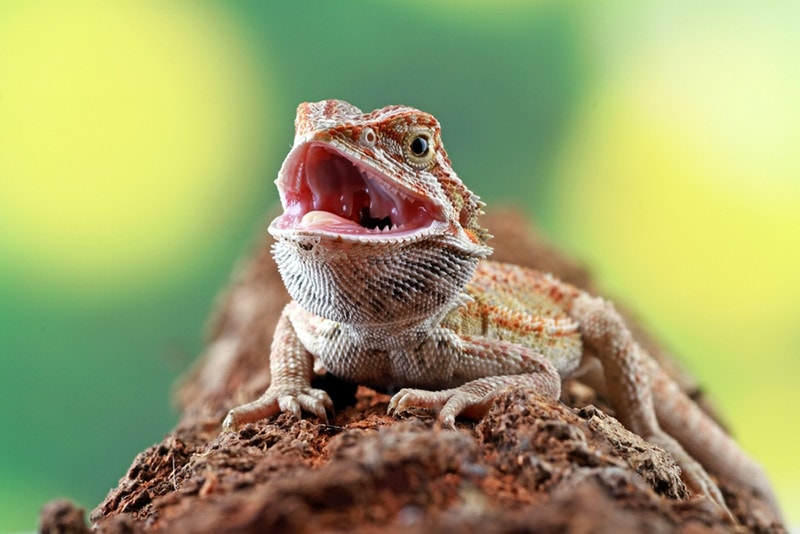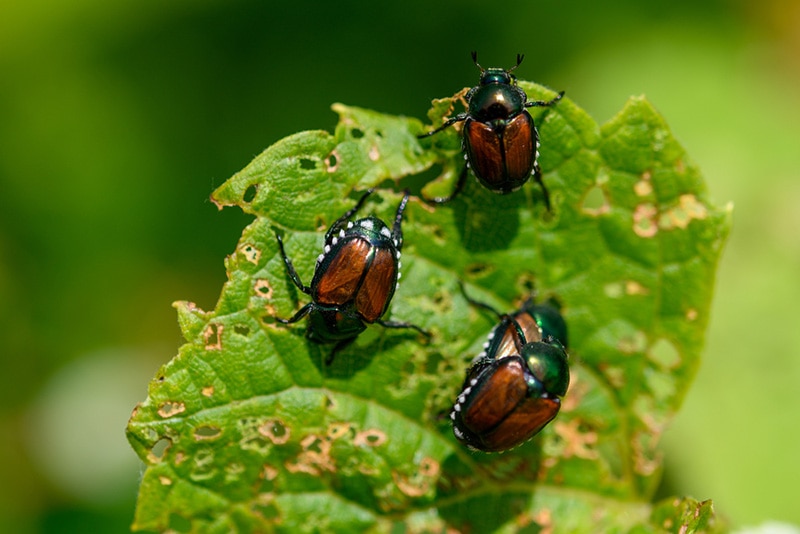Can Bearded Dragons Get Covid? Vet-Reviewed Facts
By Kit Copson
Updated on

When the COVID-19 pandemic struck, one of the questions on many pet parents’ minds was whether or not the virus could spread to their cats, dogs, hamsters, birds, and reptiles. It’s true that some animals have been affected by SARS-CoV-2, the virus behind COVID-19, but there is no evidence to suggest that reptiles, like bearded dragons, can contract the virus.
In this post, we’ll share what experts have to say about reptiles and COVID-19 and explore the possible causes of your bearded dragon’s signs of illness if they’re showing any.
Can Reptiles Catch COVID-19?
While some animals have contracted the SARS-CoV-2 virus from humans, reptiles have not, as explained by the Centers for Disease Control and Prevention (CDC), which also revealed that studies thus far have shown that reptiles, invertebrates, amphibians, and birds are not susceptible to the virus.
Animals that have been affected include cats, dogs, big cats, mink, otters, and gorillas, but the CDC notes that the chance of an animal transmitting COVID-19 to humans is low and that it’s much more likely to be passed from person to person rather than from animal to person. On the other hand, close contact with infected humans can pass the virus onto animals, but this doesn’t happen very often. Research 1 has found that reptiles in particular are very resistant to the virus, even in experimental circumstances where their immune systems are deliberately challenged with the virus.
All that said, according to CDC information, more studies will need to take place for us to be able to fully understand the spread of SARS-CoV-2 between animals and humans, especially due to the possibility of future mutations.
In short, based on the information currently available, if your beardie is showing signs of being unwell, for example, wheezing or coughing, it’s highly unlikely to be COVID-19-related and is more likely the result of another kind of infection.
Why Is My Bearded Dragon Coughing?

If your bearded dragon has been coughing and/or displaying other signs of illness, they may be suffering from an upper respiratory infection. Signs of respiratory infection in bearded dragons include coughing, lethargy, sneezing with liquid or bubbles around the nose and mouth, eye or nose discharge, loss of appetite, shallow breathing, and wheezing.
Bearded dragons that are most susceptible to respiratory illness are those that receive inadequate nutrition, are kept in unsanitary or poorly-heated conditions, and/or are experiencing stress. These conditions make bearded dragons vulnerable to bacterial, fungal, viral, and parasitic infections, which can then get into the respiratory system.
For this reason, if your bearded dragon is displaying any signs of being unwell, whatever the signs, you’ll need to get them seen by a vet to make sure they get proper treatment.
You can reduce the risk of your bearded dragon suffering from a respiratory infection by ensuring their environment is clean and properly heated. It’s also important that your beardie eats an appropriate diet to keep their immune system in good shape and gets plenty of mental stimulation to prevent boredom and stress.
Final Thoughts
In brief, the CDC has not reported any cases of reptiles contracting or transmitting COVID-19 whatsoever, so, if your bearded dragon is looking a bit worse for wear, it’s possible that a respiratory infection or another kind of illness is to blame. Contact your vet to find out what your next steps should be.
Featured Image Credit: Mr. Ratchacrit Nakkhonok, Shutterstock












